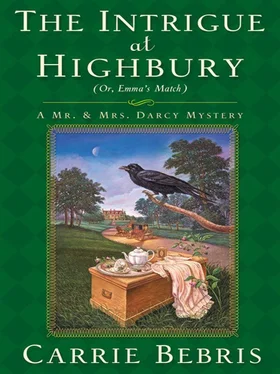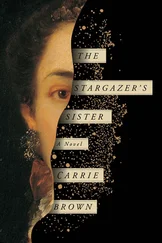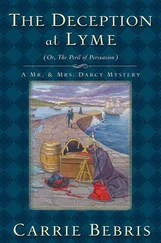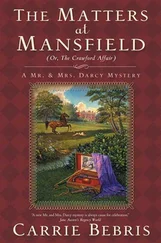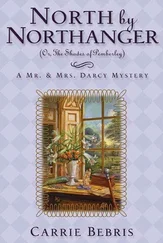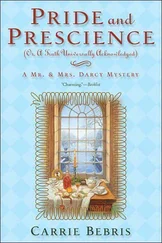Mr. Knightley nodded. “Mrs. Knightley also has her own views on the matter. She will not hear a word against Thomas Dixon, or Frank Churchill, and still harbors hope that her favorite peddler will be exonerated. I think she would very much like to see this crime laid at Madam Zsófia’s feet.”
“And you?”
Mr. Knightley gazed out the window at the dimming landscape. “I am trying to withhold judgment until we learn all we can.”
By the time they reached Guildford, both men were weary, hungry, and thoroughly tired of the insides of coaches. They were also not inclined towards pleasantries when Mr. Deal was at last before them in the private but dreary room they were granted for the interrogation. Barely had the peddler’s face registered surprise at seeing Darcy for the second time that day — with another basket, no less — than Mr. Knightley motioned him onto a splintery wooden chair beside the table, sat down on an equally suspect seat across from him, and commenced the interview.
“Mr. Deal, is your mother — your gypsy mother — familiar with belladonna?”
Mr. Deal regarded Mr. Knightley warily. He glanced up to Darcy, who remained impassive, then back at the magistrate.
“Of course she is. I would venture to say that Rawnie Zsófia knows every plant that grows in England, and many that do not.”
“Did she share her knowledge with you?”
“She did not formally train me as a healer — she saw that my talents lay elsewhere. But she taught me some rudiments, that I might tend to myself if the need arose. And she taught me to identify many plants in regions through which we regularly passed.”
“Was belladonna among them?”
“Aye. In fact, it was one of the first. Gypsy travelers often forage to feed themselves, and when I joined the kumpania , my mother taught me which plants were poisonous and which were not. She especially made sure I could identify belladonna — she did not want me or any other child in the caravan to be tempted by its sweet berries, or mistake them for something else.”
Mr. Knightley regarded the peddler in consternation. “Are you telling me that from childhood, every member of the caravan can recognize belladonna?”
“I expect so.”
The magistrate rubbed his temples. Darcy nearly did the same. Their pool of suspects had just expanded exponentially.
However, the number with clear motive remained finite. “We have been told that Edgar Churchill and Thomas Dixon visited the gypsy camp the day Mr. Churchill died,” Darcy said. “Did Madam Zsófia speak of the event to you?”
If Mr. Deal feigned his look of astonishment, the peddler was a better player than many on stage. “No — I knew nothing about it. From whom did you hear this?”
“Madam Zsófia herself.”
“You have spoken with my mother?”
Darcy handed him Madam Zsófia’s basket, from which the medicines had been removed. “This is from her.”
His face still all amazement, Mr. Deal accepted the basket but did not examine its contents.
“We would like to speak with Madam Zsófia further,” Mr. Knightley said. “Where might she be found?”
“With the caravan, I assume.”
“And where is the caravan?”
Mr. Deal turned to Darcy. “As I told you this morning, I do not know.” He ran his hand through his hair. “By the gods, I would like to speak to her myself. I cannot believe my mother met with Edgar Churchill and did not tell me. Are you certain you understood her correctly?”
“Miss Jones has confirmed it.”
“Loretta met him, too?” He stared at them, his expression transforming from surprise to dismay. “What—” His gaze drifted along the cell walls as if answers to the questions tumbling through his mind might be found etched in the cold stone. Then he closed his eyes and swallowed. “What occurred?”
“Allegedly, the two gentlemen had their fortunes told.”
“By my mother?”
“By Miss Jones and another girl.”
Mr. Deal’s eyes opened, but he did not look at either gentleman. He stared instead at a large knothole at the edge of the table, though Darcy doubted Mr. Deal even saw it. “What was my mother’s contact with Edgar Churchill?”
“We hoped you could tell us. Miss Jones claims he complained of the gout. What might Madam Zsófia have given him for it?”
Mr. Deal thought for a moment. “Tansy root.” He looked at Mr. Knightley. “Preserved in honey. Gout is not a common ailment among members of our caravan, but I sell many preparations of tansy root to gorgios . I believe I sold one to you, Mr. Darcy. It is not a cure that works immediately, however — one must take the remedy daily for it to have effect.”
Mr. Perry had said the gout remedy Darcy purchased was indeed tansy. “She could have given him anything and told him it was a cure for gout. Including belladonna.”
“She would not do that!” Mr. Deal said.
“Are you certain?” Darcy countered. “Particularly if she thought she was protecting you?”
“From my father?”
“From his rejection. Or from want — perhaps she intended to secure your inheritance.”
“I told you, the Roma do not think that way.”
“Maybe one does,” Mr. Knightley said. “One who has lived amongst them but is not truly a gypsy.”
Mr. Deal turned his head sharply to stare at Mr. Knightley. “What do you mean?”
“If Madam Zsófia did not poison Edgar Churchill, perhaps you did. You just admitted that you sold many gout remedies — or something passing for gout remedies — to gorgios .”
“Not to him.” Mr. Deal slowly shook his head. “And none of the remedies I sold were anything but what I claimed.”
“If you did not prepare them yourself, how can you be certain?”
A mind like hers, once opening to suspicion, made rapid progress.
—
Emma
Emma wished Mr. Knightley had not needed to rush off to Guildford nearly the moment he returned from London. In the wake of his abrupt departure, it had taken some effort to convince Mr. Woodhouse that his son-in-law was quite safe and not out personally nabbing gypsies. If only she could assure herself of that fact.
There being only three remaining at Hartfield — Emma, her father, and Mrs. Darcy — dinner was a quiet event. After the meal, Emma anticipated a long evening spent diverting her father with games of backgammon or cards. But Mr. Woodhouse surprised her by announcing his intention to retire to his chamber for the night. She immediately became anxious for his health.
“No, my dear, I am fine. Only a little tired, is all. When Perry was here earlier, he asked me whether I had been sleeping well, and I said how could anybody, with all these gypsies about? He made me promise to retire early tonight. So I am off to bed.”
Emma could not imagine anybody’s being able to fall asleep this early and hoped her father, in his determination to follow Mr. Perry’s advice, was not consigning himself to hours spent fretting in the dark about trampers stealing his poultry.
She saw him comfortably settled in his chamber, and after assuring herself that he would indeed drift off to sleep, went to the drawing room. Mrs. Darcy stood at one of the windows.
“Has the rain started?” Emma asked. She had not heard any drops falling, but it had threatened all day.
Mrs. Darcy started and turned round. “What? Oh — no, it has not. I beg your pardon — I did not hear you enter.” She moved away from the window and sat down on a chair near the fire. “I was contemplating something Miss Bates said this afternoon, though it might be entirely insignificant.”
“If Miss Bates said it, it probably was.” Emma took the seat opposite her. “However, tell me anyway.”
Читать дальше
